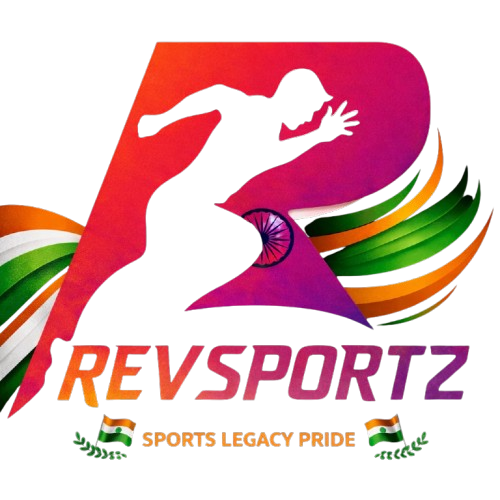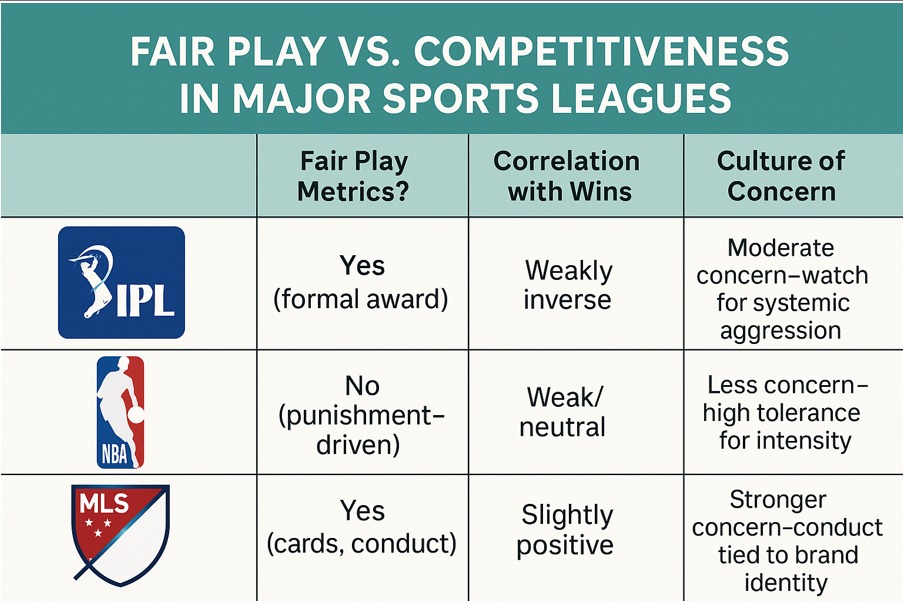
Over the years, one curious trend has emerged in the Indian Premier League (IPL): teams that dominate the points table often find themselves languishing near the bottom of the Fair Play Award standings, and vice versa. The IPL Fair Play Award, given to the team that best upholds the spirit of the game, has frequently been won by teams that don’t necessarily win the championship or even qualify for the playoffs. This recurring pattern raises an important question: Is there an inverse relationship between competitiveness and fair play in the IPL or is it merely a coincidence?
The Fair Play Award is decided based on umpires’ ratings after each match, judging teams on:
● Respect for the opposition and umpires
● Adherence to the laws and spirit of the game
● On-field behaviour (like over-rate, appealing conduct, etc.)
Points are awarded out of 10 per match. In theory, a team could win all its games and also be the fairest but historically, that’s rarely happened.
Looking at past IPL seasons reveals a trend:
● Teams like Chennai Super Kings (CSK) and Sunrisers Hyderabad often top the Fair Play charts but haven’t always been title winners in those seasons.
● Dominant teams like Mumbai Indians (MI) or Kolkata Knight Riders (KKR), known for aggressive gameplay, often rank lower in the Fair Play standings.
● In multiple seasons (e.g., 2013, 2015, 2021), the team that won the IPL finished in the bottom half of the Fair Play table.
This pattern is too consistent to ignore.
There may be multiple factors at play that trigger this inverse relationship. Top teams tend to push the limits with aggressive appealing, mind games, and strategic over-appeals. Slower over-rates due to close game management or review tactics can also dock Fair Play points. Players sometimes walk a thin line between intensity and misconduct.
Teams that are not in playoff contention may play with more freedom and less pressure.
They might focus on developing young talent and maintaining the spirit of the game, thus taking fewer high-stakes decisions that might risk Fair Play penalties. Umpires are only human and may subconsciously rate lower-ranked teams more generously on sportsmanship, especially if they’re not seen as aggressive or confrontational.
While the Fair Play Award is subjective, certain tangible correlations exist:
1. Over-rate compliance: Winning teams sometimes slow down play strategically; this leads to consistent point deductions.
2. Appeal behaviour and DRS usage: More desperate or strategic teams tend to push umpiring boundaries.
3. On-field temperament: Aggressive captains (e.g., Kohli, Gambhir, Rohit) have led successful campaigns, but not always with high Fair Play scores.
So, while not mathematically linear, there’s a clear behavioural trade-off between ultra-competitive play and fair play norms. I decided to compare the IPL (Indian Premier League), EPL (English Premier League), and NBA regarding performance vs. fair play likely arises from a combination of sport-specific factors, cultural norms, and structural differences in how games are played and governed.
The IPL has more individual accountability. In cricket, individual players’ behaviour (like appealing aggressively, slow over rates, dissent) is highly visible and impacts Fair Play scores directly. One moment of poor sportsmanship can swing the match, making fair play both crucial and tightly policed and there are fewer chances to recover. Fair Play is actively awarded and tracked as a badge of honor, creating visible pressure.
For More Sports Related News: Follow RevSportz
In the EPL, physical contact is integral to gameplay. Tactical fouls, yellow cards, and aggression are often necessary and even praised. Some degree of roughness or “gamesmanship” is accepted and even expected in elite football. Fair Play points aren’t officially celebrated or incentivized by clubs or fans.
The NBA is fast-paced and physical. Fouls are frequent and a part of game strategy (e.g., fouling to stop the clock or break rhythm). Unless it’s technical or flagrant, fouling doesn’t imply a lack of fair play. There is no formal Fair Play award in the NBA, so it’s not tracked or promoted in the same way.
I also looked at the MLS for abundant caution. MLS uses disciplinary points and sportsmanship tracking. The leagues track yellow/red cards, fouls, off-ball conduct, and simulation. Teams with better discipline often do well, but correlation is weak. MLS promotes “Respect the Game” ethos; players are seen as role models, particularly for younger American fans. From a cultural perspective, MLS leans into inclusive, family-friendly values and conduct is more central to the brand.
The Fair Play Award in the IPL is highly visible, announced every season, and a point of pride. Fans and franchises recognize it. In the EPL/NBA, the Fair Play is measured quietly, if at all, and doesn’t carry the same prestige or fan interest.
This can be worrying if there is normalization of poor sportsmanship among top teams that could influence younger players and lower-level leagues. Sponsors and global audiences may not support a league where bad behaviour is rewarded. The IPL was designed to blend entertainment with cricketing spirit. A slip in values may hurt its identity
However, the inverse trend is mild and not deliberate. The league reinforces fair play rewards and doesn’t compromise on discipline. Top-performing teams take pride in balancing competitiveness and ethics (e.g., CSK’s legacy).
The IPL’s trend is unique because of how the league emphasizes fair play as a core value, yet sometimes fails to see the most successful teams reflect that value. This contrast makes the IPL stand out and that can be both a red flag and an opportunity. If the BCCI and franchises emphasize fair play as a long-term cultural investment (not just a side metric), it could reinforce the IPL’s global standing as both entertaining and ethical.
Also Read: Rohit the selfless teamman for every occasion comes to the fore





